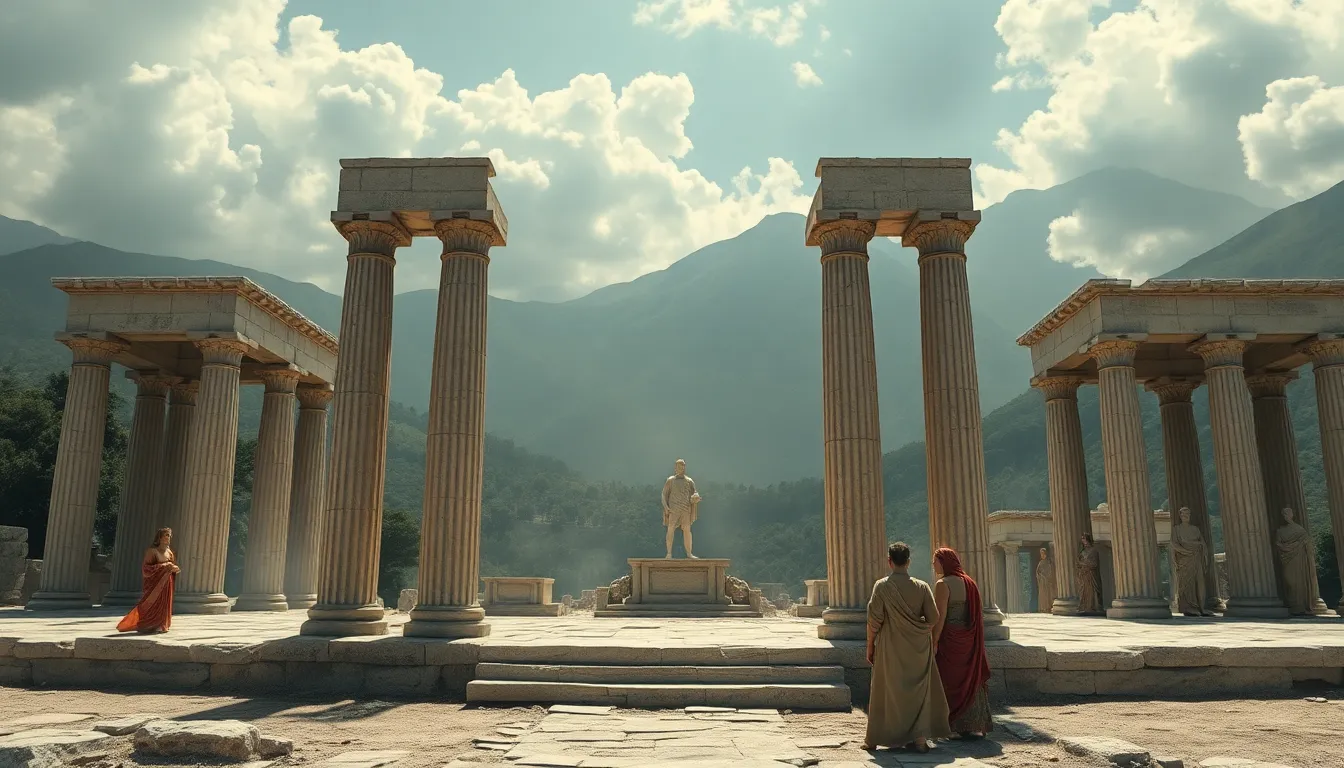From Offerings to Oracles: The Spiritual Side of Greek Festivals
I. Introduction
Greek festivals were not merely occasions for merriment; they were crucial cultural events deeply embedded in the spiritual life of ancient Greece. These festivals served as a means of connecting with the divine, celebrating the gods, and reinforcing community bonds.
The spirituality of ancient Greek culture was intricately woven into the fabric of their daily lives, influencing everything from politics to personal relationships. Festivals provided a unique platform to express this spirituality, through rituals, offerings, and communal activities.
This article explores the profound spiritual dimensions of Greek festivals, examining their historical context, the nature of offerings, the role of oracles, and how performance arts contributed to religious expression.
II. Historical Context of Greek Festivals
The origins of Greek festivals can be traced back to ancient times, often linked to agricultural cycles, seasonal changes, and the worship of deities. Festivals were essential for marking significant points in the year, such as harvests or the onset of spring.
- Dionysia: Celebrated in honor of Dionysus, the god of wine and fertility, this festival featured dramatic performances and was crucial for Athens’ cultural life.
- Panathenaea: A major festival in Athens that honored the goddess Athena, it included a grand procession, athletic contests, and sacrifices.
These festivals were not only religious observances but also vital for community cohesion. They brought people together, fostering a sense of shared identity and purpose among city-states.
III. Offerings: A Means of Connection
Offerings to the gods were a fundamental aspect of Greek religious practice. These offerings varied in nature and significance, providing a means for individuals and communities to connect with the divine.
- Types of Offerings:
- Animal sacrifices, such as goats and pigs, symbolized devotion and gratitude.
- Food offerings, including fruits and grains, represented the bounty of the earth.
- Libations of wine or olive oil were poured out as a sign of respect and honor.
The symbolism behind these offerings was profound; they were seen as a way to appease the gods and seek favor in return. The communal aspect of making offerings—often performed in large gatherings—reinforced social bonds and shared beliefs.
IV. Oracles: The Voice of the Divine
Oracles held a special place in ancient Greek spirituality, serving as intermediaries between the gods and mortals. The most famous oracle was the Oracle of Delphi, dedicated to Apollo.
The significance of the Oracle of Delphi extended beyond individual inquiries; it played a crucial role in guiding city-states on matters of war, politics, and festivals. People traveled great distances to seek the oracle’s prophecies, believing they were divinely inspired.
Oracles influenced decisions surrounding festivals, often determining the timing and nature of celebrations based on the gods’ will. Their presence underscored the belief that the divine could directly impact human affairs.
V. Theatrical Performances and Spiritual Expression
Theater was an integral component of Greek festivals, particularly those held in honor of Dionysus. The performances of tragedies and comedies were not only entertainment but also a form of spiritual expression.
Exploration of themes such as fate, morality, and the divine in these plays allowed for a deeper understanding of the human condition and the gods’ role within it. Notable playwrights like Aeschylus, Sophocles, and Euripides used the stage to reflect societal values and spiritual dilemmas.
The impact of performances on spiritual beliefs was profound, as they provided a communal experience where audiences could reflect on their relationship with the divine and the moral lessons conveyed through the stories.
VI. Music and Dance as Spiritual Practices
Music and dance were vital elements of Greek festivals, serving as forms of worship and expressions of joy. They played a significant role in rituals, enhancing the spiritual atmosphere of celebrations.
- Importance of Music and Dance:
- Hymns and chants were sung to honor the gods, creating a sacred environment.
- Dances often mimicked the actions of deities or celebrated mythological events.
The ritualistic elements of musical performances included specific instruments like lyres, flutes, and drums, which were believed to invoke the presence of the gods. Dance served as a physical manifestation of worship, allowing participants to express their devotion and joy collectively.
VII. Rituals and Ceremonies: A Pathway to the Divine
Key rituals performed during Greek festivals were essential for fostering a connection to the divine. These included elaborate processions, sacrifices, and communal feasting.
- Significance of Processions: These often involved the entire community, symbolizing unity and collective devotion.
- Sacrifices: Offered to appease the gods, these were viewed as vital for ensuring favorable outcomes for the community.
The transformative power of collective rituals could be felt in the shared experience of celebration and devotion. These acts served to reinforce social bonds and individual identities within the spiritual landscape of ancient Greece.
VIII. Conclusion
The spiritual elements present in Greek festivals reveal a rich tapestry of beliefs and practices that have shaped not only ancient society but also contemporary culture. The interconnectedness of offerings, oracles, theatrical performances, music, and rituals underscores the importance of spirituality in daily life.
As we reflect on these ancient practices, it is evident that the legacy of Greek festivals continues to influence modern celebrations. Exploring the spiritual dimensions of contemporary festivals can enrich our understanding of community, devotion, and the human experience.
In today’s world, let us draw inspiration from the ancient Greeks and seek to explore the spiritual dimensions of our own festivals, fostering connections with each other and the divine.




